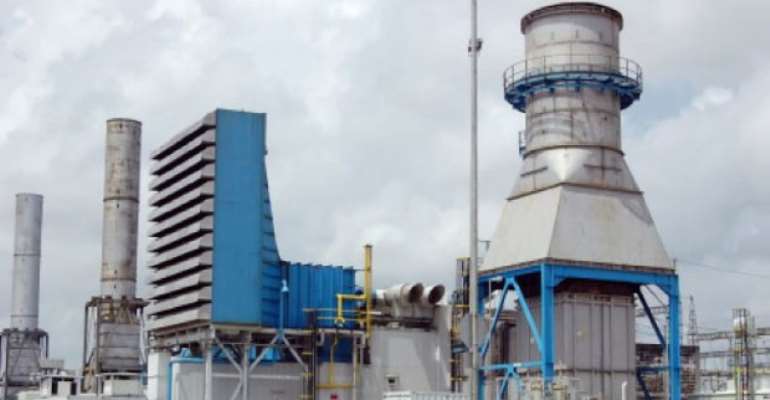Pulling manufacturing sector from the brink – Punch

Increasingly, manufacturers are groaning under the crushing weight of Nigeria's economic tailspin. Many companies have either downsized their workforce, turned their premises to warehouses, events centres, churches or have even relocated to other countries. The President of the Manufacturers Association of Nigeria, Frank Jacobs, has therefore, said that an emergency response is needed to save this critical sector from total collapse. This is a clarion call that should be taken seriously.
In its third-quarter report, the National Bureau of Statistics states that 'Nominal GDP growth of manufacturing in the third quarter of 2016 was recorded at -2.93 per cent year-on-year. This is partly due to the continued fall in the exchange rate, which makes imported inputs more expensive, thereby increasing business costs. This is greatly as a result of continued fall in the naira to dollar rate, which translates to much higher cost of business operations.' However, MAN president's concern is that the Central Bank of Nigeria policy directive to commercial banks to allocate 60 per cent of foreign exchange to manufacturers is being fragrantly defied. The CBN said that it paid $660 million to 1,342 companies in September through 23 banks and international money transfer organisations. Official exchange rate as of yesterday was N305.50 to $1, while the parallel market rate was N465 to $1. This is against the background of the official rate of N197 to $1 before the naira was floated in June. Thus, many manufacturers have been finding it difficult to maintain their production line, as raw materials and machinery abroad cannot be procured. According to the CBN, while foreign reserves have plummeted from $62 billion in 2008 to barely $37 billion now, demand on forex has climbed up to $1.2 billion weekly today. There lies the rub.
Besides, Nigeria's sloppy trade policies and liberalisation have encouraged the unrestrained importation of finished goods, which favour China and Indian markets; and smuggling has compounded the matter. China is currently the global leader in manufacturing, with its cheap goods.
About 50 companies had closed shop as of the end of August, says MAN. But the decision of Erisco Foods Limited recently to shift base to China from Lagos, and sack 1,500 out of its workforce further drives home this point. From China, the company will be exporting its tomato paste to Nigeria, which the company's Chief Executive Officer, Eric Umeofia, said was by far more cost-effective. The firm claims to have the biggest tomato processing plant in Africa and the fourth biggest in the world. From 40 per cent average capacity utilisation, the manufacturing sector recorded a 20 per cent drop at the end of the second quarter of 2016. Indeed, this is awful.
With Nigeria's Gross Domestic Product shrinking to $481.07 billion in 2015 from the $568.5 billion it recorded in 2014, according to the World Bank, to become Africa's biggest, only a productive manufacturing sector can guarantee a rebound. In June, 11 out of 16 manufacturing sub-sectors declined. Among them were pharmaceuticals, food and beverages, tobacco and chemicals, leather and footwear, textiles, furniture, printing and electrical equipment. However, computer and electronics; appliances and components; cement; plastic and rubber products and transport equipment recorded spikes.
Textile manufacturing, one of the worst hit, was in the 1970s-80s only second to agriculture, as Nigeria's highest employer of labour, with over 350,000 direct jobs at its peak. As a result, the industrial landscapes of Kano, Kaduna, Lagos, Aba, Port Harcourt, Asaba, among others, were littered with 175 mills. But the Minister of State for Industry, Trade and Investment, Aisha Abubakar, declared in April that it 'is a shadow (of its former self) with barely 30 companies operating presently.'
Apart from the scarcity of forex and competition from imports, epileptic power supply and double-digits bank interest rates are as much destructive. The 4,202.7 megawatts of electricity generated in September dropped to 3,462.1 MW, said Transmission Company of Nigeria, on November 1. Progress has not been achieved in the power sector despite its privatisation in November 2013, which gave birth to the generation and distribution companies.
Industrialists, therefore, provide electricity for their operations through the maintenance of multiple heavy-duty generators, just as they defray high electricity bills. One of the victims of this disabling business environment is Innoson Motors, an auto manufacturer based in Nnewi, Anambra State. Its Managing Director, Innocent Chukwuma, decried the N40 million electricity bill and N60 million spent on diesel monthly in 2015. Only a few manufacturers can survive with this huge cost of doing business here.
Ultimately, the cost is transferred to consumers. It is a malady that promotes the paradox of locally-made goods being costlier than imported brands. It was not surprising, therefore, that Nigeria's leading industrialist, Aliko Dangote, advised the government last month to review without further delay, the power privatisation so that investors with the financial and technical capacity to deliver, could step in. Instructively, he spoke on promoting local manufacturing and poverty reduction in Nigeria, from a private sector experience, at the National Institute for Policy and Strategic Studies, Kuru, Plateau State.
In the United States, for instance, there are 7,300 power plants, nearly 160,000 miles of high-voltage power lines, millions of low-voltage power lines and distribution transformers that deliver electricity to 145 million customers, according to the US Energy Information Administration. There is a big lesson here for Nigeria, which has gas shortages to its power plants, despite being an oil/gas producing giant.
When policy directives are flouted elsewhere, especially one with telling effects on the economy, governments assert their authority by imposing severe sanctions. This is the exact reaction we expect from the CBN Governor, Godwin Emefiele, on banks' forex denial to manufacturers. Evidently, Nigeria's Vision 20:2020 that envisages that the economy will be globally competitive is in clear and present danger. Changing the status quo requires a real sector that is export-driven and creates jobs.
